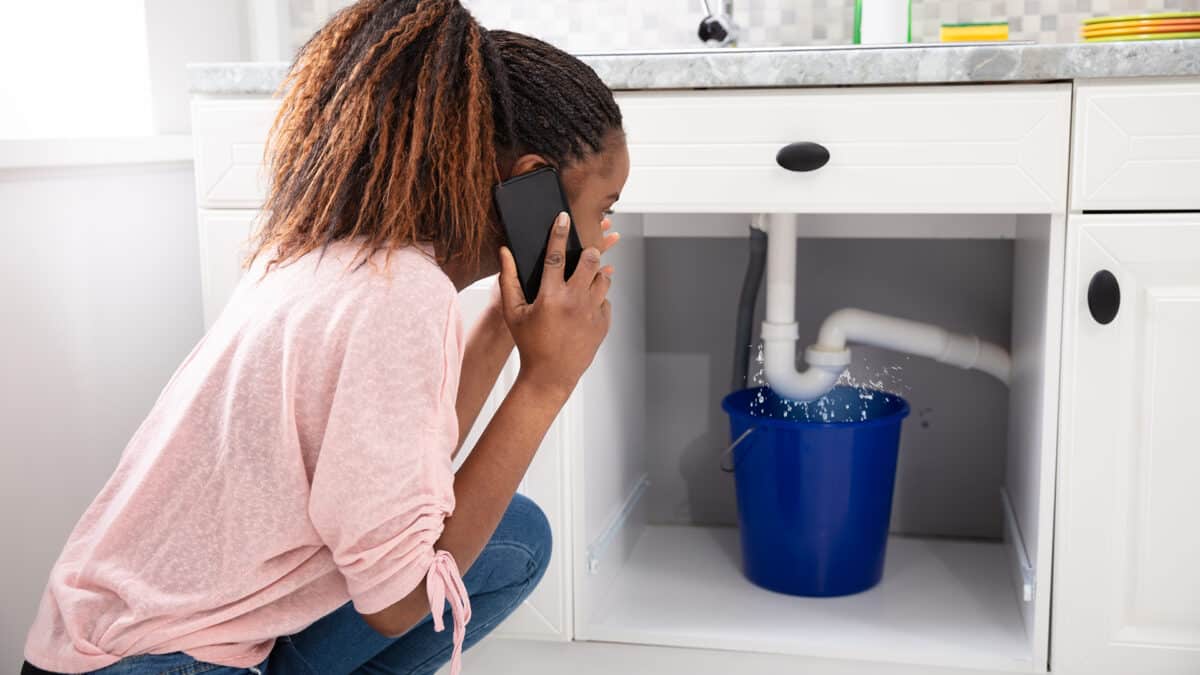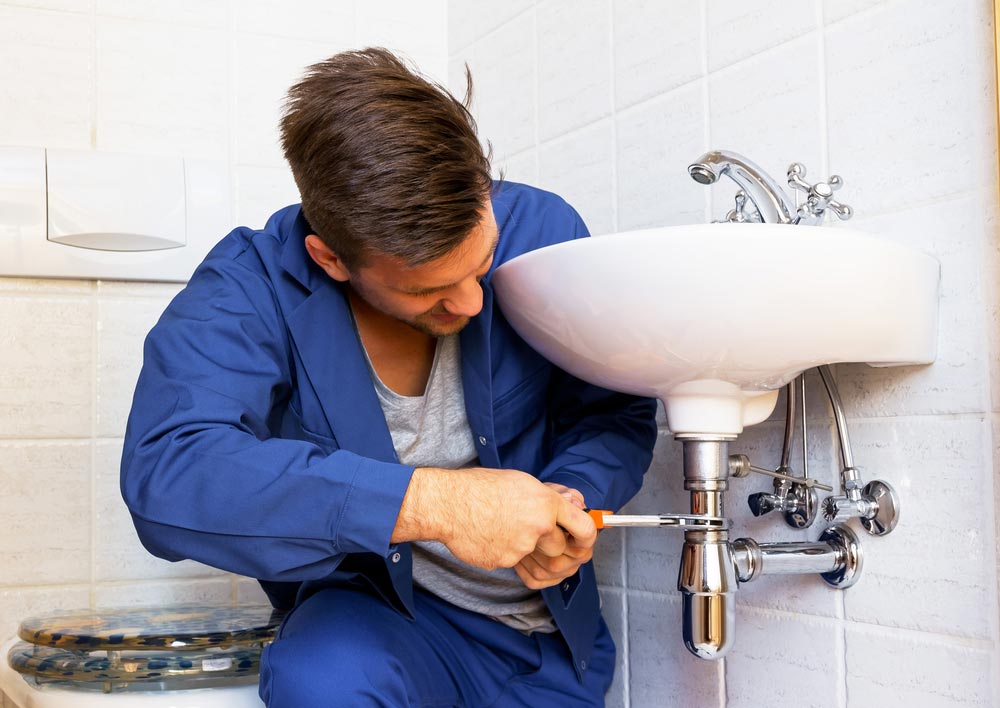How do you actually feel on the subject of Expert Tips for Managing a Plumbing Emergency Until Help Arrives?

Pipes emergency situations can strike any time, creating stress and anxiety and possible damages to your home. Whether it's a ruptured pipeline, a clogged drain, or a leaky faucet, knowing how to manage the situation until a professional plumbing shows up can save you from additional problems. This short article offers vital emergency situation plumbing suggestions to assist you reduce damage and regain control during a plumbing dilemma.
Shut off the Supply Of Water
The initial step in any plumbing emergency is to shut down the water. For local problems, such as a leaking faucet or toilet, switch off the shutoff near the component. In the case of a major leakage or ruptured pipeline, find your home's main water shut-off shutoff and transform it off promptly. Knowing the area of these shutoffs in advance can save valuable time during an emergency situation.
Turn off Your Water Heater
In particular emergency situations, such as a burst pipe, it's important to turn off your water heater. This prevents overheating or damage to the device when water stops flowing. Switch off the power supply to the hot water heater (electric or gas) and allow it cool off to avoid possible risks.
Momentarily Quit a Burst Pipe
A ruptured pipe can bring about considerable water damage in mins. To minimize the problem:
Call a professional plumber right away to resolve the problem completely.
Have an Emergency Plumbing Package
Prepare a basic pipes emergency situation set to take care of minor concerns efficiently. Your set needs to include:
Having these devices on hand can make a significant difference in your capability to take care of emergency situations.
Unclog Drains Safely.
A blocked drain can be a discouraging and untidy problem. Below's just how to tackle it:.
If these methods do not work, avoid utilizing excessive pressure, as it may get worse the obstruction.
Manage Overflowing Toilets.
An overruning toilet can trigger immediate turmoil. Here's what you need to do:.
Address Small Leakages with Short-lived Fixes.
Little leakages can quickly end up being substantial problems if left unattended. Make use of these temporary repairs till professional help shows up:.
While these solutions aren't permanent, they can help minimize water loss and damages.
Take Care Of Frozen Pipes Carefully.
In colder climates, icy pipelines are an usual emergency situation. If you believe an icy pipeline:.
Know When to Call a Specialist.
While quick fixes can aid briefly, specific plumbing issues call for prompt expert attention. Call a plumbing if:.
Promptly calling a professional makes certain the issue is settled properly and protects against further issues.
Prevent More Damage.
Taking fast activity to reduce damages can save you money and time in the long run. Right here's exactly how:.
Final thought.
Pipes emergencies can be frustrating, but with the ideal knowledge and devices, you can manage the circumstance properly up until aid arrives. By shutting off the water, attending to small leakages, and making use of short-term repairs, you can decrease damage and maintain your home safe. Bear in mind, these suggestions are momentary remedies; always seek advice from a licensed plumbing professional to manage the origin of the problem. Preparation and fast reasoning are your best allies in any type of pipes emergency situation.
8 Helpful Tips for Managing Plumbing Emergencies at Home
If your plumbing system hasn’t failed once, wait for it because almost everyone has a story to tell. Sometimes, it could be simple emergencies such as a leaking pipe, a blocked cistern, or even a big burst pipe. In situations like this, you need to have some handy tips to save you some money and from possible damages.
Take care of minor issues early.
Sometimes, you could have avoided an emergency by taking proactive measures while it was still early. Some major plumbing emergencies can be a result of an ignored minor issue. We recommend that you have items like plumbing tapes and other related items. A plumbing tape can allow you to manage minor leaks before the plumber arrives.
Cut off the water supply.
This tip is essential in almost any type of leakage problem. For problems like minor leakages in the toilet or kitchen, turn off the supply that takes water to the affected pipes. If the leakage is a major pipe, you must shut off the supply valve to the entire building. This will help you avoid flooding your home and neighbors if you share a flat.
Know your plumbing system
Folks typically move into a new apartment without understanding the water supply around the building. This can prove disastrous if a water emergency arises and the plumber is far away. The previous tip will prove useless if you don’t practice this one. More importantly, know where your water shut-off valve is located – you’ll need that knowledge to prevent potential home floods.
Have some common handy tools
There are lots of plumbing emergencies that you can handle without hiring a plumber. That’s why you must keep some tools available always. Some tools that you can use to fix simple plumbing emergencies easily include plumbing tapes, screwdrivers, thread seal tapes, plungers, pliers, tape measures, and rubber gloves.
Insulate your pipes from cold
You’ll save yourself from many plumbing expenses if you protect your water pipes from the cold. This is because of the harmful effects that cold weather can have on your pipes. During winter, your pipes can burst from being overly expected to freezing temperatures. So, make sure insulators are there to keep the pipes working correctly.
Avoid practices that will clog your toilet.
Many people indulge in practices that can damage the plumbing system of the entire building. One of these is when they use their toilet to dispose-off garbage. They flush all kinds of things, such as paper towels, bandages, hairs, female sanitary products, etc., down the toilet. This will block your toilet in the long run, incurring unnecessary expenditures. Dump such waste in the trash instead.
Check your dials regularly.
Sometimes, there could be leakages in your home without noticing them in time. So, constantly monitor your water meter dial. If the dial is reading when there is nobody using water, this is an indicator that there is leaking. Check for leaks immediately. Call a plumber as soon as possible if you can’t find any.
https://www.constructionplacements.com/8-helpful-tips-for-managing-plumbing-emergencies-at-home/

I'm certainly very occupied with What to Do During a Plumbing Emergency and I really hope you enjoyed the entire post. Those who enjoyed our page if you please consider to pass it around. I thank you for your readership.
Click Here